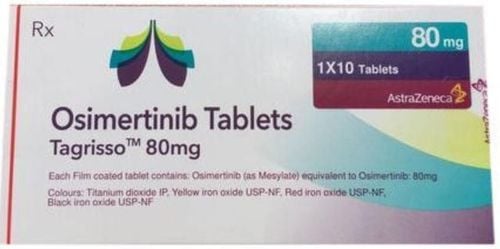This is an automatically translated article.
Video content is professionally consulted by MSc. Dr. Nguyen Thi Thanh Huyen, Oncologist, Vinmec Times City International General HospitalBesides common cancers in men such as liver cancer, lung cancer, prostate cancer is also a dangerous disease, causing many serious problems. In particular, at the metastatic stage, the choice of treatment method is extremely important.
1. Learn about prostate cancer
Prostate cancer is a common disease in men, caused by abnormal or uncontrolled growth of prostate cells. Usually, the disease develops slowly in the early stages, if detected and treated early, the patient can live for many years, even completely cured. However, if the disease becomes severe, the rate of disease development is very rapid, even fatal.Although the cause of prostate cancer is currently unknown, according to some studies, prostate cancer is influenced by the patient's diet and genes. People who eat a lot of fat have a higher risk of disease.
Prostate cancer is divided into 4 stages:
● Stage 1: New tumor formed.
● Stage 2: The tumor has not grown large.
● Stage 3: Cancer has invaded nearby tissue.
● Stage 4: The cancer has spread through the blood and lymph to the bones, liver, lungs,...
2. Learn about prostate cancer treatment
Prostate cancer detected at an early stage can be cured. In the early stages, when the disease is mild, the doctor will proceed to remove the cancer cells completely. Surgical removal of the prostate gland and pelvic lymph nodes. Or radical radiation therapy. Combined with the active treatment process, the patient can be cured. When the cancer has progressed to a late stage, the chances of successful treatment are much lower. Treatment options for advanced prostate cancer include: Endocrine therapy or orchiectomy. Valence; Radiation therapy relieves symptoms.In Vietnam, most of the patients who come to the hospital are diagnosed at a late stage, the disease has metastasized. Common sites of prostate cancer metastasis are bone, abdominal lymph nodes, lung, liver, rarely brain metastases. The main goals in the treatment of patients with metastatic prostate cancer are to improve the patient's current symptoms, ensure quality of life, and prolong the patient's survival time.

Ung thư tuyến tiền liệt phát hiện ở giai đoạn đầu có thể chữa khỏi
Orchiectomy: Androgen inhibitor therapy has a fundamental role in the treatment of metastatic prostate cancer. Most patients with distant metastases should be initiated with medical orchiectomy using either an LHRH agonist (Goserelin, Triptorelin, Leuprorelin acetate) or an LHRH antagonist (Degarelix) or an external castration. department. Hormonal therapy combined with orchiectomy and anti-androgen drugs is applied on a case-by-case basis. Cases at risk of symptom flare-ups with LHRH agonists should be pre-treated with an antiandrogen for at least 1 week. Patients with metastatic stage, high risk (visceral metastases or bone metastases with 4 sites, including at least 1 site outside the axial, pelvic bone) require treatment in combination with: antiandrogen, antiandrogen. New generation androgen synthesis, chemical. Resistant to orchiectomy: Although the majority of patients are sensitive to orchiectomy, the disease almost always progresses to orchiectomy resistance. The methods of choice in the stage of orchiectomy resistance: Anti-androgen therapy, the addition of anti-androgen drugs, or a new generation of androgen synthesis inhibitors. Chemotherapy, radiopharmaceuticals, PARP inhibitors: Olaparib is indicated in patients with genetic mutations. Antiresorptive drugs: used to relieve symptoms of bone pain and events associated with bone metastases such as fractures. Analgesic treatment: Use analgesics for patients according to pain assessment, according to the pain scale of the World Health Organization. Psychological care: Mental support and encouragement help patients feel light, overcome anxiety and fear. Prostate cancer is not so dangerous when detected at an early stage. Therefore, you should go to the doctor as soon as you suspect that you have the disease for prompt and effective treatment.
Currently, Vinmec International General Hospital has routinely performed radiotherapy for prostate cancer on the most advanced Clinac iX accelerator system (Varian Company, USA) today. Many patients achieve satisfactory results with few side effects, often making a full recovery after treatment. The clinics are fully equipped with high-tech and standard equipment, ensuring that patients are monitored, examined, and cared for comprehensively before, during and after radiation therapy.
Besides, in order to improve service quality as well as bring convenience to customers, Vinmec now also deploys Prostate Cancer Intensive Care Package. Customers who need advice on diagnosis and treatment of prostate cancer can go to Vinmec International General Hospital.














